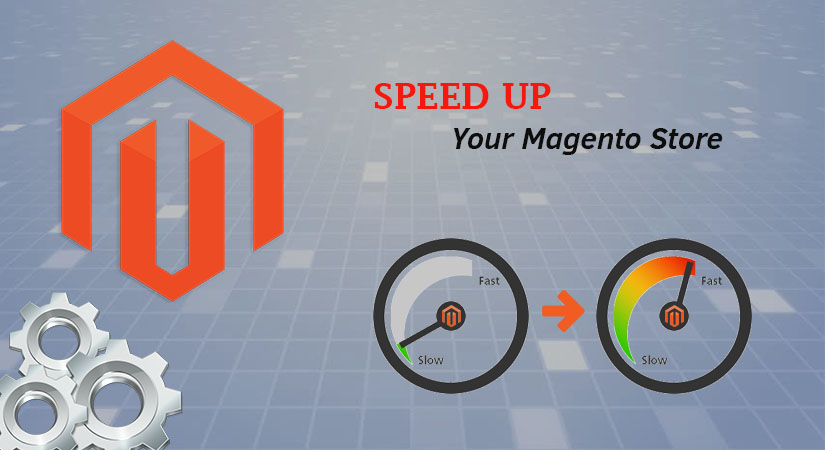Magento is an open source eCommerce platform with a huge number of online users actively using it. The features like robustness, great flexibility, customization, and scalability are the main reasons of it’s wide popularity. While most of the eCommerce platforms and Content Management Systems are having speed issues and degrading performance over time, the only option left out with the online store owners is optimizing their stores to improve their site performance.
According to well-known analytics site Kissmetrics, today 40% of the customers abandon an online store if it takes more than a few seconds to load. Moreover, just a one second delay in the page load time can result into 7-8% reduction in conversions.
In this article, we’ve shared some important tips and tricks on how to boost the speed of your Magento website and optimize your overall site’s performance. There are various steps you might consider to improve your Magento site performance. Here are some of the most recommended ones to best optimize your Magento store:
- 1.Using Latest Versions
It’s advised to always use the latest Magento version. The upgraded version not only comes with more enhanced features and security fixes, but Magento performs better with every update. It’s not required to go and check the updates on the Magento website every time, Magento notifies you with the important updates in your messages inbox.
- Merging JS and CSS
Actually, Magento has an in-built feature of merging your CSS and JS files into one file. This reduces the total number of http requests and ultimately speed up the page loading time. By doing advanced configuration in your Magento admin panel, you can easily concatenate your CSS and Javascript files. While merging your JS files, it may cause some minor issues which can be solved further.
- Hosting Environment
It is crucial to choose a fast and reliable web host when trying to improve Magento performance. It is recommended to stay away from shared hosting as they tend to overcrowd their servers and you will end up sharing resources between thousands of website. There are various renowned web hosting services where you will be in complete control of your resources.
- Using Content Delivery Network
One of the great ways to decrease the loading times is implementing a CDN with your Magento site. Using a CDN like MetaCDN enables serving your assets from a location geographically nearest to your customers and ultimately reduces the potency and increases download speed for those assets. Magento allows you define where certain assets like CSS, javascript, images, etc. are loaded from such as a URL pointing to a CDN.
- Code and Database Optimization
You should optimize your database frequently using your Database Management System and improve your DB performance by using broad optimization scripts and query indexing. If you’re not technically sound, you can hire the Magento development services to design, develop and maintain your Magento store.
Further, optimizing your product images can drastically speed up your website and give upto 50% performance boost. You can compress the images before uploading them using various tools available on the web. PhotoShop is one of the tool and there are a number of extensions you can use to auto-optimize the images of your online store.
- Cache And Indexers
Magento has an in-built caching module which is very useful in reducing the web server processing load by serving the pages which are already visited before from a cache. This makes it load much faster.
Magento has a number of built-in features, one of them is the indexer. Magento updates indexes on every object store by default, but in some cases, manual updates are required. Basically, indexes are used to speed up Database queries.
- Enabling Flat Catalog
Magento uses the EAV model (entity attribute value) to store customer and product data. Enabling the flat catalog for categories and products will help you merge the product data into one table, thereby improving your site’s performance by responding to MySQL queries faster.
So, these were some of the important optimization tips, you need to implement in your Magento website to boost it’s performance.






























